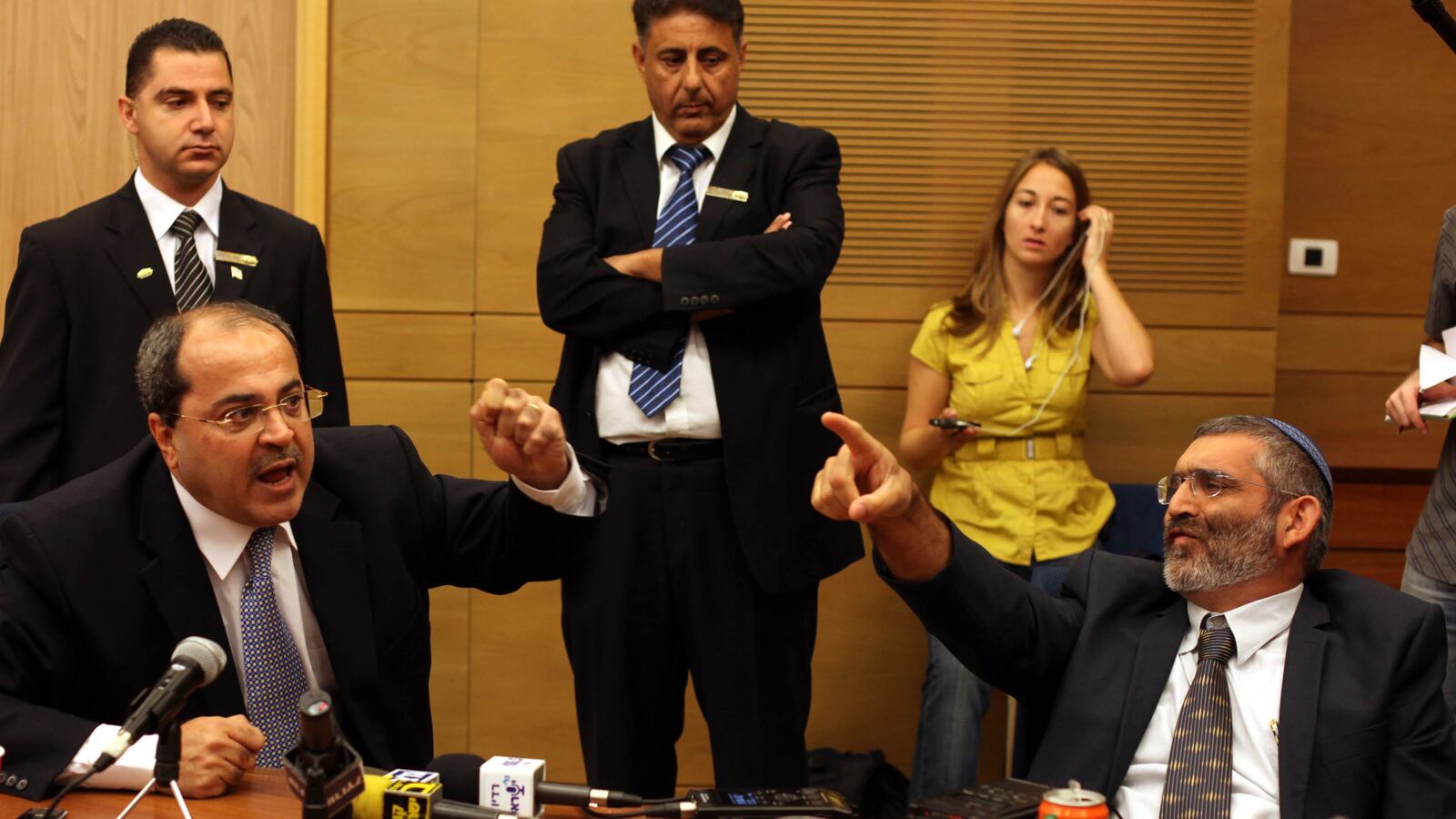Is Israeli democracy in danger? Dangers and attacks on democratic principles are certainly in evidence, and should not be made light of. But is democracy itself, or at least the level of liberal democracy we have become accustomed to, in danger? Many fear it is, and some make dire predictions with great confidence.

But the collapse of the Israeli democracy, and the resultant emergence of some sort of clerical fascism, has been hugely overpredicted in the past decades—at least since the right-wing-Orthodox coalition came to power in 1977.
In the meantime, despite the growing popularity of such predictions, Israel, for all its flaws, has actually become more, rather than less, of a liberal democracy.
Anti-democratic phenomena and trends are very real. Avigdor Liberman and his party are very prominent in this context, but they are not alone: some of the nastiest illiberal rhetoric and illiberal legislative proposals (like the one seeking to limit foreign donations to left-wing NGOs) have come from Likud MKs.
But there is often a huge difference between what is originally proposed and what is eventually adopted. The courts have a proven record of interpreting draconian laws in a way that surprises and dismays their initiators, and the Supreme Court has now, unlike in the past, the power of actually annulling anti-democratic legislation. Of course, we shouldn’t wait for the courts: we should vigorously confront illiberal initiatives in the public sphere.
But in confronting them, it is unhelpful to portray the country as standing on the brink of a fascist abyss. I recall enlightened and reasonable people (not some wild radicals) arguing that we were on the brink of this abyss when Menachem Begin first became prime minister. Since then, we must have made great strides forward on this path. Nevertheless, today’s fashionable talk about fascism does not come, like Gramsci’s writings, from a fascist prison. It comes from the Knesset podium, from prestigious public and academic forums, from the national TV and from the IDF Radio. The Zionist state must have devised a very peculiar kind of fascism.
A University colleague of mine, a professor of law, recently said that he believes that in a few years’ time people like him in Israel will be in prison for their political views. I told him that in a few years’ time, people like him would still be at the heart of the Israeli establishment, just as they are today. We shall wait and see.
But I would suggest that he ask himself a few questions about the past. Is the state of Israel, on the whole, freer and more democratic today that it was in 1977, when Menachem Begin came to power at the head of a coalition of right-wing, Orthodox and ultra-Orthodox parties?
Is it today easier or harder for an Israeli citizen who is not just critical of the government, but, for instance, rejects the Zionist ideology, to express his or her views not just in some fringe outlets, but in the mass media, or in the academia, or in the world of arts? Do supporters of refusing to serve in the occupied territories find it today easier or more difficult to publish their views in the mass media? Is the Israeli media today more or less restricted by military censorship than in the 70s, 80s, or even in the 90s? Is the Supreme Court, today, more or less likely to rule against the authorities on sensitive issues such as those that touch on national security, or in response to claims of ethnic discriminations on the part of Arab citizens? Is it—for all the clout coalition politics bring Orthodox politicians—easier or more difficult now to find a place open on Saturday, or providing non-Kosher food?
And if the person in question is old enough, another question is in order: would you have guessed, in 1977, that this is what would happen in all those areas in the coming decades? How many gay pride parades (in Tel Aviv, where it is an official event, and even in Jerusalem) do you recall when social democrats, rather than right-wing nationalists and clerical parties, were in power? And would you have predicted in 1977 that the IDF would for many years be more liberal towards gays than the American military? Of course, laws on homosexuality have changed across the whole Western world since the 70s. But it is far from trivial that Israel is part of this world.
Certainly, there have also been negative developments since 1977. The chief among them is not within Israel proper: It is the huge rise in the number of settlements in the territories. Professor Yeshayahu Leibowitz famously predicted that the occupation would, eventually, destroy the Israeli democracy from within.
I believe that in the end, if the land between the river and the sea is not partitioned between two nation-states, the State of Israel will cease to exist. There is thus no lack of good reasons, both as a matter of moral principle and as a matter of national interest, to oppose the occupation and the settlement enterprise clearly aimed at perpetuating it.
But the prediction that the occupation would destroy the democratic system within Israel proper, however reasonable it may have sounded, has simply been proved wrong.






